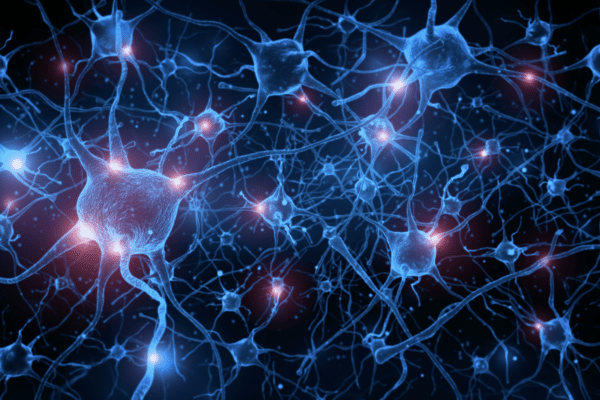What Is the Difference Between Alcohol Abuse and Alcoholism?

Alcohol misuse in adults is a significant societal issue. It goes beyond merely going out a few nights, celebrating with friends, and having a couple of drinks. Alcohol use can turn into a drinking problem, which can turn into severe alcohol dependence and substance abuse.
Whether it’s you or a loved one who is dangerously toeing the line, it can be difficult to tell when harmless, occasional drinking has turned into a real problem. There is more than just one category of alcohol misuse: the two major ones are Alcohol Abuse and Alcoholism.
What Is Alcohol Abuse?
When a drinking problem starts affecting your daily functions, your behavior may have crossed the line into alcohol abuse.
Substance abuse can result when the pattern of drinking damages the drinker’s health, relationships, or work.
People who abuse alcohol can suffer consequences such as::
- Drinking in situations where it is hazardous, such as driving or operating heavy machinery
- Continuing to drink despite relationship turmoil that is caused or exacerbated by drinking
- Declining work productivity or inability to complete responsibilities at home, work, or school
- Legal problems
- Deteriorating mental or physical health
- Increasingly frequent episodes of drinking
A person may claim they only drink excessively once in a while. However, if drinking has negatively affected a person’s life often enough to become a consistent problem, you or a loved one may be suffering from alcohol abuse.
What Is Alcoholism?
Alcoholism is a chronic disease of addiction. The medical diagnosis is called “alcohol use disorder”. This condition is categorized as mild, moderate, or severe, depending on the person’s use.
People who suffer from alcohol addiction may exhibit behaviors and thought patterns, such as:
- The alcohol use has surpassed a generally “negative” impact and reached a level where it severely impacts physical and mental health.
- A person appears to value alcohol above friends and family relationships, jobs, or physical health.
- Wanting to stop drinking, but always going back to it.
- A person suffering from alcohol addiction may feel that they can’t function in daily life without drinking.
- The addicted person may experience physical cravings and experience physical withdrawal if they don’t have it.
Symptoms of alcohol withdrawals can include:
- Anxiety
- Headaches
- Nausea & vomiting
- Irritability
- Cravings
- Tremors
- Hallucinations
- Mental health problems
These symptoms can also vary from person to person in level of severity. Not everyone who is an alcoholic will have physical withdrawal symptoms.
Alcohol Abuse and Alcoholism
While the two may seem very similar (and they are), they do have some differences. Regardless of whether someone abuses alcohol or has crossed the line into alcohol addiction, there is help available for anyone who struggles with alcohol.
Definitional Differences – Behavior vs. Disease
Alcohol abuse is the overuse and misuse of the substance. This behavior pattern and excess consumption get to the point of negatively affecting work, family, and personal life. It often impacts health. It is a pattern and habit of reckless and negligent drinking that continues even in the face of negative consequences. Someone who abuses alcohol often can stop drinking, on their own willpower, if given a good enough reason to do so, such as a health issue, or potential loss of a relationship. A person who abuses alcohol and continues to drink can, at some point, also progress to having alcoholism.
Alcoholism is a disease characterized by persistent use and often a physical addiction to alcohol. The person suffering from this disease will feel like they cannot cope with day to day life without drinking. They may have tried to stop on their own, but the physical, emotional, or mental discomfort they experience when they are not drinking is intolerable. They are driven back to taking a drink to comfort the dis-ease they experience when sober. They usually build up a very high tolerance to it due to the regular consumption level.
The physical dependence may cause withdrawal symptoms if they stop drinking suddenly. These symptoms can make a person feel sick, or unable to function. At their worst, physical withdrawal can be life threatening.
Tolerance
Someone who abuses alcohol will not necessarily develop a tolerance. “Building up a tolerance” means that you need to drink more and more to feel the effects. The effects felt after one or two drinks won’t be noticeable until six or seven. With alcoholism, a significant symptom is a buildup of tolerance. There is no ceiling, meaning the tolerance will just continue to grow.
Frequency of Alcohol Intake
Alcohol abuse doesn’t necessarily mean drinking every day. Even occasional binge drinking can be detrimental enough to affect one’s personal and professional life. Binge drinking a few nights a month can cause significant consequences, such as legal issues and declining health.
An alcoholic will not be able to consistently or reliably limit their intake. The person often can’t, or won’t, stop drinking even when it causes severe and detrimental health issues, not to mention relational and legal issues. An alcoholic may not even drink every day, but when they do, they almost always lose control of when, or if, they stop. They stop because they pass out, their supply runs out, they get arrested, in a fight, or some other external interference with their ability to continue drinking. Stopping does not come from an internal realization that they have had enough. It is as if their “off switch” is broken. They continue to drink in spite of negative consequences.
In a situation where there isn’t enough money to pay for both rent and alcohol, a severe alcoholic will spend their last dollars on another drink before securing shelter. The various risks are why this is such a dangerous disease.
Willpower and Agency
People who abuse alcohol can learn to associate the negative consequences of drinking with their excessive drinking behavior. Through plenty of diligent, intentional work, anyone with a drinking problem can eventually unlearn the behavior. Once the person learns that there is a direct line between their alcohol abuse and their negative behavior, they can often change their detrimental habits.
A person with an alcohol addiction cannot change on their own. Willpower is not enough to overcome dependence, similar to an addiction to opioids. Unfortunately, this is why many alcoholics drink to the point of isolation, unemployment, and homelessness. There is no level of negative consequences that will overcome the alcoholic’s need to drink because they are mentally and physically unable to make the change for themselves. This inability to change their thinking is also why remission from alcoholism requires very targeted addiction treatment.
Treatments
The treatments for alcoholism and alcohol abuse are different.
A person can change their alcohol abuse patterns through therapy and willpower, and a mindful, intentional change in drinking habits. Abuse is a habit caused by a trigger. The first step is always to see your doctor about your struggles and learn what they recommend depending on how severe the alcohol use is.
On the other hand, alcoholism is a disease. A more regimented addiction treatment plan created by trained professionals gives a person the best chance at acheiving sobriety. A treatment plan may include medication for stabilization, therapy services, or psychiatry. Alcohol addiction treatment is more effective when loved ones are supportive. Treatment centers can help a person to stop drinking while therapy services are utilized to teach healthy coping mechanisms. Therapy will also help a person deal with the mental health and emotional issues that contribute to addiction.
Conclusion
Alcoholism and alcohol abuse are serious conditions that can be severely detrimental to one’s life if left unmanaged. If you or a loved one suffer from alcohol abuse or alcoholism, there is help available. It’s crucial to get help as soon as possible.
Recovery takes time. Each person is unique and will respond to different types of interventions, but recovery is real, and it is possible.
Contact an expert at the Master Center today. Our physician-led program helps people reclaim their lives with addiction treatment. Find out what you can do to help yourself or your loved one stop drinking.


